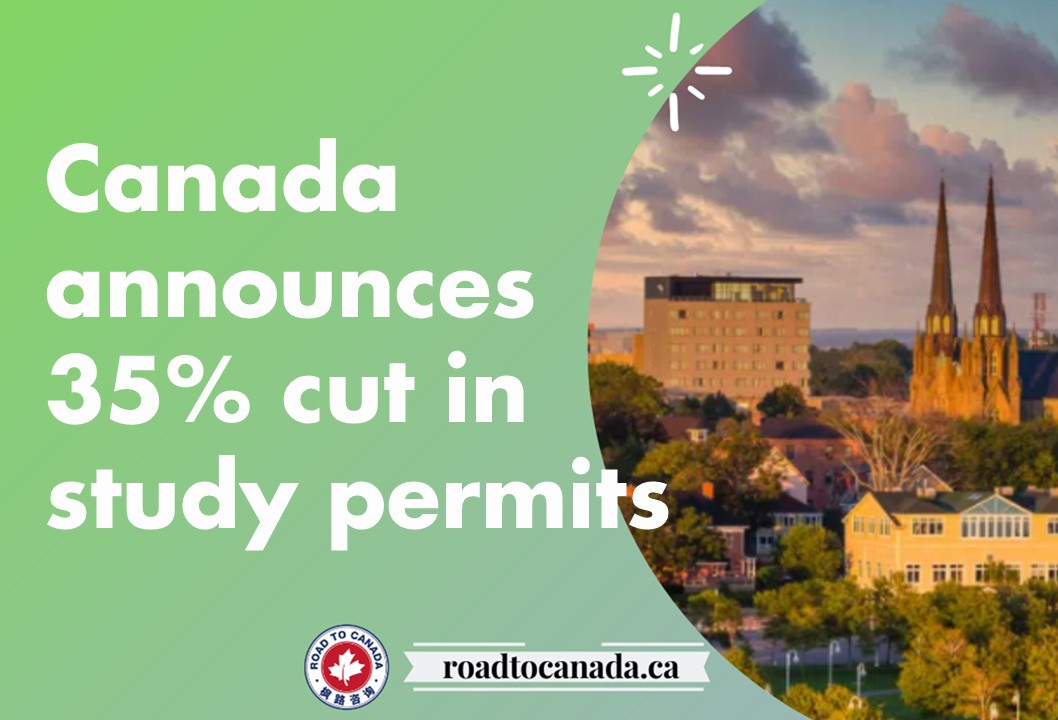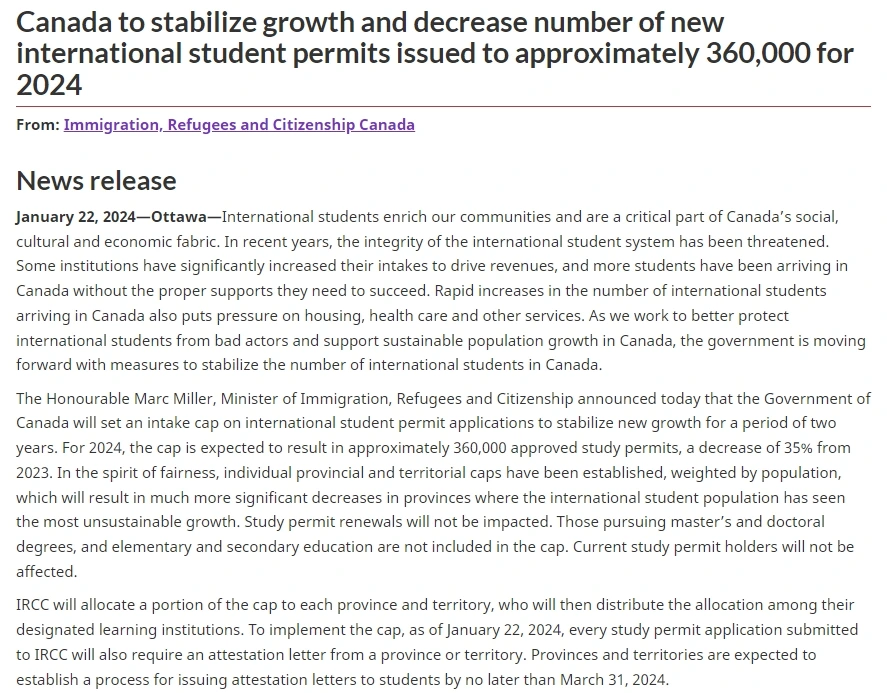
Canada announced a 35% cut in the number of study permits in 2024
Today, the Canadian government suddenly released news, which can be said to be an earthquake-level change. The editor summarized the content of this news:
1. Announcing the establishment of a cap on the number of international students in the next two years, it is expected that approximately 360,000 authorized study permits will be provided by 2024, a 35% decrease from 2023.
Interpretation: Alleviating the housing and education pressure of the local population
2. Those who graduate from private colleges will no longer be issued a graduation work permit (from September 1, 2024)
Interpretation: For some international students, this is definitely a bad thing
3. Spouses with undergraduate and college student visas will no longer be issued a spouse work permit (masters and doctoral students will not be affected)
Interpretation: The model of one spouse studying and the other working will become a thing of the past.
4. Graduates of master’s and other short-term postgraduate programs will be eligible to apply for a 3-year work permit.
Interpretation: No need to worry about the time issue of graduate programs. The three-year work permit is unified, but the implementation details have not been announced yet.

According to the announcement, IRCC will allocate a portion of the cap to each province and territory, which will then be allocated to approved educational institutions.
Starting January 22, 2024, each study permit application submitted to IRCC will also need to be accompanied by a letter from the province or territory to implement the cap. By March 31, 2024 at the latest, provinces and territories must develop procedures for providing letters of certification to students.
The number of new study permit applications approved in 2025 will be reassessed at the end of this year, following a two-year interim measure.
During this time, the Government of Canada will continue to work with Designated Learning Institutions, national education stakeholders, and provinces and territories to create a sustainable future for international students.

Regarding the new policy regulations starting from September 1, 2024, it is clearly stated that if the courses taken by international students are public school courses in private institutions, they will no longer be eligible to apply for a graduation work permit.
In the past, the policy of private colleges offering public college courses did attract a large number of international students. However, due to the lack of supervision of private colleges, there were certain loopholes in the graduate work permit policy.
Of course, it’s not all bad news. Graduates of master’s and other short-term postgraduate programs will soon be eligible to apply for three-year work visas.
This policy adjustment balances study time with the opportunity to gain work experience and possibly become a permanent resident. The time to get your ID is shortened!



